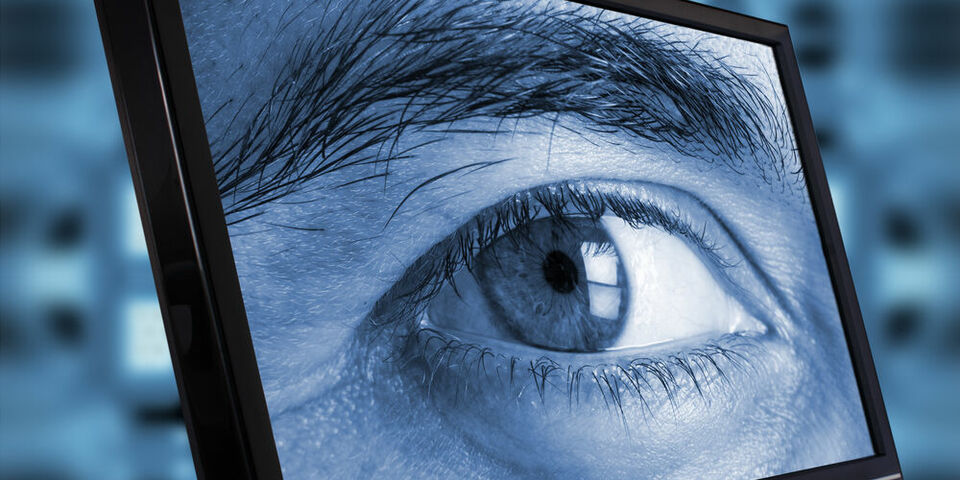Youth objects to online proctoring
Making an exam with your webcam turned on? Rather not, say political youth and student organizations. They strongly object to online proctoring and demand an alternative. During the University Council meeting of Tuesday last week, rector Frank Baaijens said that TU/e will have to once again make use of online proctoring during this academic year’s final exam period as well. “For a part of our exams, this really is the last resort.”
It is expected that online proctoring will once again be necessary for a part of the exams during the final exam period at the end of this academic year, rector Frank Baaijens told the members of the University Council on Tuesday last week. According to him, proctoring was the “last resort,” and not making use of it “means that exams will have to be postponed, which leads to study delay for a part of our students.” He also said that the Executive Board will limit it to one quarter of all the exams,
Eleven youth organizations published a letter yesterday in which they expressed their concerns about digital invigilation during online examinations. They call on institutions of secondary vocational education and higher education to stop making use of online proctoring as far as possible. The eleven organizations appreciate the fact that ‘an incredible amount of work’ is being done to ensure that students are provided with the best possible online alternatives for education with the aim of preventing study delay. But the switch to online examination should be carried out carefully, they say.
The authors of the letter believe that programs should first consider alternatives, such as open-book exams, substitute assignments and essays. And only after they’ve exhausted all other options, should institutions consult with students about the possibility of online proctoring, and explain to them how their personal data will be processed exactly.
TU/e could not provide any alternative methods for 92 of the 371 scheduled exams during the most recent exam period, which took place in the third quartile, says the Executive Board. That is why these exams were held via digital platform Proctorio. The TU/e board drew up a privacy statement especially for this purpose in early April.
Last week, Baaijens said that the university will carefully evaluate how students and teachers assess this online proctoring tool. The results of that evaluation will certainly be used during the coming exam period, he promised. “Teachers also have more time now to think about alternative methods, but that won’t be possible for all the exams. But as I already said that is maximized for one quarter of all the exams,” Baaijens said.
SURF
The youth organizations feel that students who don’t want (or can’t) take part in an examination with online proctoring should always be provided with an alternative, such as a small-scale exam that requires physical attendance, in compliance with all hygiene measures.
SURF, the collaborative organization for ICT in Dutch higher education, published a new white paper (which is in Dutch) about online proctoring yesterday. Online proctoring does indeed have a ‘major impact’ on privacy, it says in the paper. Programs should therefore carefully consider what carries more weight: the exam or privacy. In addition, programs need to be careful, as with regular exams, that students don’t commit fraud. In order to prevent this, each exam should have different questions and cases. A second camera might be necessary sometimes, in addition to the webcam on the laptop. Another problem: a continuation of the lockdown for a longer period of time might lead to the development of fraud software to mislead invigilators during online proctoring.
The eleven youth organizations have summed up their objections in a letter to the educational institutions. The letter is signed by the political youth organizations of GroenLinks, D66, PvdA, Denk, ChristenUnie, Partij voor de Dieren and SP, as well as by student organizations ISO, LSVb and JOB.


Discussion